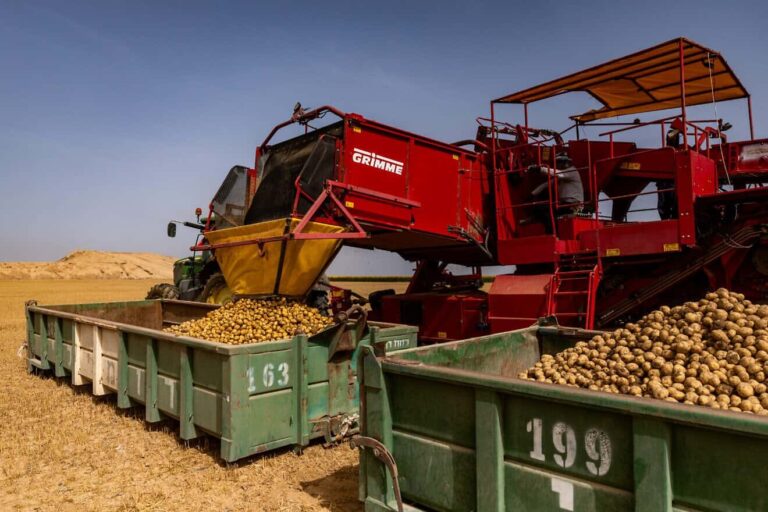Trips today find meaning by connecting with how Israel has had to pivot, adapt, change, accept, repair, protest, struggle and thrive in a new reality.

The Israel Ministry of Tourism invited me to speak at a luncheon about my personal experiences leading groups to Israel and, most notably, how it has changed since the Hamas-led terrorist attacks on Oct. 7, 2023.
Sponsored in partnership with the Consulate General of Israel, American Friends of Leket Israel and Returning the Sparks, it was a gathering of 25 lay leaders and Israel professionals from around New England and sparked a conversation about creating meaningful and relevant trips at this time.
The invitation challenged me to articulate how the war has changed the way I think about leading groups to Israel.

As a rabbi, I have led countless trips, making Israel a destination for spiritual and educational growth, as well as vacation and enjoyment. And on a personal level, I have a daughter who made aliyah in August 2023 and is currently serving as a combat soldier in the Israel Defense Forces’ Palchatz “search and rescue” unit.
In the old days, pre-Oct. 7, I believed that the primary purpose of a trip to Israel was to study the story of the Jewish people in our birthplace. There was no better way to learn about the establishment of the modern-day State of Israel than to travel the countryside, studying Israeli poems and literature, and visiting where history was made. At the end of the many study seminars, we discussed what we learned about Israel, what we were taking with us and how we might nurture our connection to Israel upon returning home.
Since Oct. 7, the nature of organized travel to Israel has changed. These days, I do not organize study seminars; I organize solidarity missions. These trips allow participants to bear witness. We hear stories from survivors of that Black Shabbat or listen to Israelis tell us how the war has affected their lives. We’ve been told by countless Israelis that our presence has made a difference. I can attest that the experience has made a difference for all the travelers.
Between foreign workers who left the country and young men and women being called to serve, volunteering has become a necessity. When I recruit for travel to Israel, my congregants tell me they want to volunteer; they want to feel useful, to contribute, to make a difference.
We have picked lettuce and packaged celery on family farms in southern Israel. We have harvested potatoes from the earth with Leket Israel, the leading food rescue organization in Israel. We have made meals for soldiers at a culinary school in Jerusalem.
To draw on the Leket Israel experience for a moment, this act of picking potatoes was like a trip back in time to the early 20th century. I am a city girl. In my life, I never harvested a potato. It was a new experience for me and for so many in our group. Second, I loved doing something that actually made a difference. I was glad to know that the potatoes my group harvested would be eaten.
There was something satisfying about physical labor in sundrenched fields, performing tasks that hearken back to leading early Zionist thinkers like Aaron David (“A.D.”) Gordon. As a middle-aged man, he embraced the pioneer lifestyle in pre-state Israel of hard manual labor in agricultural settlements. Gordon became an inspiration for young pioneers as he articulated and embodied the principles of a new “religion of labor.” I thought about the incredible sacrifice of those who came to the region long before there was a state.
Whereas previous trips found meaning in understanding sites and history, trips today find meaning by connecting with how Israel has had to pivot, adapt, change, accept, repair, protest, struggle and thrive in a new reality. The bricks and mortar of antiquity still matter and are worth teaching, but getting hands dirty, listening to and holding the stories of Israelis from diverse backgrounds and reflecting on Israel’s resilience are priceless for travelers. They leave their mark on the very people who served as our teachers and guides in Israel.
By bringing groups to Israel, I am saying to Israelis: We stand with you. We will listen to your stories, support your economy, and, yes, get on our hands and knees to harvest potatoes if that is what you need. We don’t know your suffering, but we know our Jewish souls are connected and that being together matters because each member of our group represents a host of American Jews who feel the same way.
In the best of circumstances, Israel’s story has always been about its people and its stories. Since Oct. 7, its people have been held together with great fragility. It feels like the government and larger society simply do not see eye-to-eye on important matters. Yet, somehow, the social fabric of the society is a thick and rich tapestry that allows for so many remarkable nonprofit and nongovernmental organizations to provide hope and real-time support for Israelis of all walks of life. As Diaspora Jews, we can have a direct impact and influence through those groups.
There are countless enemies of the state from within and from the outside. The external battles are always there and will continue.
Maybe by working from the inside, volunteering and connecting with compassion, we can help hold our people and nation together. It is why I go, visit, support and love Am Yisrael, Medinat Yisrael and Eretz Yisrael, “the people, state and Land of Israel.”
As Israel begins its recovery from the missile attacks, volunteering is needed more than ever. Bringing fellow travelers gives me the chance, and the honor, to deepen and expand the connection and love for the land and our people.
This article was written by Rabbi Amy Wallk, who has served as rabbi of Temple Beth El in Springfield, Mass.
